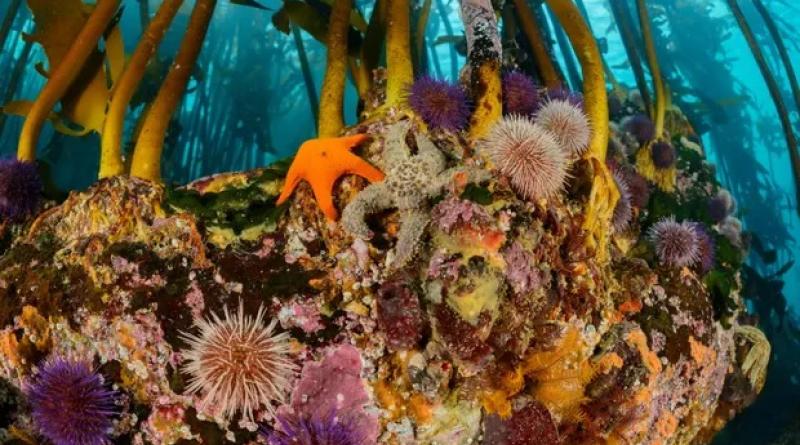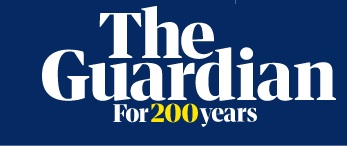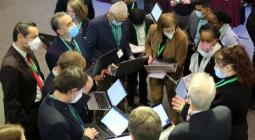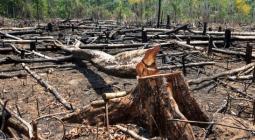UK’s ‘peanuts’ pledge for land and ocean conservation faces criticism at Cop15

Conservationists say amount is ‘nothing like what’s needed’ to achieve 30x30 target and address nature crisis
The UK has announced it will give nearly £30m to support developing countries in delivering the target to protect 30% of land and ocean by 2030, an amount conservationists criticised as being “nothing like what’s needed”.
The announcement was made on Thursday as the environment secretary, Thérèse Coffey, started international negotiations at Cop15 in Montreal. The £29m pledge – £24m of which is new money – is being allocated to support developing countries in delivering the 30x30 target, which is a negotiating priority for the UK at the UN summit.
However, it was met with scepticism by some. “It’s obviously welcome that the UK starts to think about putting money on the table, but we all know this is nothing like what’s needed – either to address the nature crisis or to unlock the diplomatic process,” said Craig Bennett, CEO of Wildlife Trusts, who is at Cop15.
“We need real political leadership, and that means Thérèse Coffey making deals out here, getting Rishi Sunak on the phone to other world leaders and doing deals to start trying to save these talks, and making a completely different league of financial contributions on the table to unlock this deadlock. That is the minimum that is needed to turn the nature crisis around.”
In 2021, the UK government said that £3bn of its £11.6bn climate finance commitment would go to nature. But at Cop15, many developing countries say that they are being asked to agree expensive new conservation targets which will need new money.
Ian Dunn, CEO of Plantlife, who has also been at COP15, said: “Sometimes a door opening is only visible with a tiny chink of light. This is perhaps the only positive interpretation. The World Economic Forum suggests that over half the world’s GDP is moderately or highly dependent on nature. That’s $44tn [£36tn], which perhaps provides some perspective to the £30m.”
A negotiator from one of the developing countries that walked out of talks on Wednesday in a row over money said: “It’s obviously peanuts. Laughable.”
Alongside the £29m, the government has also pledged £5.8m – which is part of funding that has already been announced – for projects to restore nature in overseas territories. The money is for the Darwin Plus scheme, which will support more than 20 conservation projects abroad. This includes funding satellite technology to monitor seabirds and humpback whales in South Georgia; reintroducing threatened plants to the Falkland Islands and helping endangered sea turtles in the Cayman Islands.
More than 160 scientists sent an open letter to the Sunak in the runup to Cop15 saying his decision not to attend sent a strong signal to the government that getting a good international agreement for nature did not matter. Hugh Fearnley-Whittingstall has also weighed in, saying Sunak should create a legally binding domestic target to halt and reverse wildlife loss by 2030 in the UK, in line with international (but not legally binding) ambitions outlined in the current draft of the UN biodiversity framework.
Coffey is under pressure for having delayed the publication of the government’s Environment Act targets on clean water and biodiversity. There are concerns among conversation groups that the water pollution goals are likely to be weakened amid an ongoing “attack on nature” by the government. Targets are expected to be announced in the coming days, more than six weeks after they were promised.
The UK’s International Environment and Climate minister, Zac Goldsmith, is working with more than 30 countries on a new 10-point plan for increasing finance for biodiversity in partnership with the EU, Gabon, Ecuador and private donors.
Barry Gardiner, Labour MP for Brent North, described 30x30 as a “glorious soundbite”. In England, for example, the government says it is protecting about 28% of land for nature, but in reality it is closer to 3%, conservationists say. Gardiner said: “Saying something is a protected area on a map creates a paper park. It does nothing to save the environment or any species in it … this is a distraction from the urgent and unprecedented action that is really required.”
cover photo: Setting the target of protecting 30% of land and ocean by 2030 is a negotiating priority for the UK at Cop15. Photograph: Poelzer Wolfgang/Alamy





